Categories: Featured Articles » Electrician Secrets
Number of views: 32053
Comments on the article: 12
10 advantages of electronic energy meters compared to induction
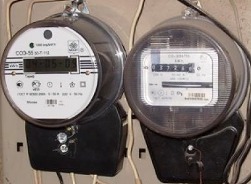 As you know, in Soviet times, electricity meters of induction type were used to account for the consumed electric energy. Nowadays, these metering devices can be found less and less, electronic metering devices have replaced them. How justified is this transition? To answer this question, we give 10 advantages of electronic energy meters compared to induction.
As you know, in Soviet times, electricity meters of induction type were used to account for the consumed electric energy. Nowadays, these metering devices can be found less and less, electronic metering devices have replaced them. How justified is this transition? To answer this question, we give 10 advantages of electronic energy meters compared to induction.
1. The first and most significant advantage is a higher accuracy class and, accordingly, a smaller error in the results of measuring the amount of electric energy consumed.
Previously, in conditions of a relatively low cost of electricity, the accuracy of induction metering devices was quite enough. Now the situation is different. One of the main tasks of power supply companies is to maximize the accuracy of accounting for generated, transmitted and consumed electric energy, since the income level of these companies depends on this. Therefore, to reduce errors in electricity metering, preference is given to electronic meters.
It should also be noted that the accuracy class of the device is provided only subject to the requirements for its operation. For example, if the induction meter is subjected to vibrations, then this reduces accuracy of his testimony. In this case, an electronic meter, in which there are no analog elements, has an advantage, since vibrations do not affect its accuracy class.
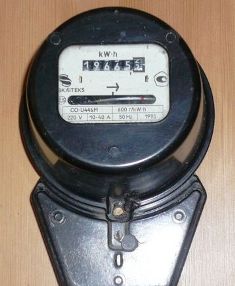
2. The next advantage of electronic metering devices is high sensitivity, a higher accuracy class with light loads, as well as with sudden changes in load.
3. In our time, the issue of implementation is relevant. multi-tariff metering of electric energy. The essence of this method is the breakdown of the day into several tariff zones and, accordingly, the level of payment for the consumed electric energy. The main goal is to reduce the level of electricity consumption during the hours of morning and evening highs. The appearance of electronic meters makes it possible to realize the multi-tariff metering of electric energy, which can also be attributed to their advantage.
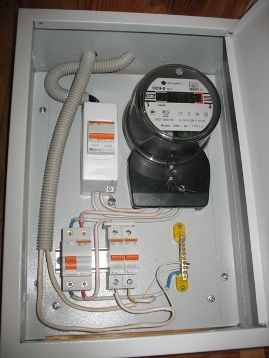
4. Among the advantages of electronic meters, their multifunctionality is no less significant. Modern electronic metering devices have the ability to simultaneously account for several components: the active, reactive component of the consumed electrical energy. In addition, a huge advantage is the ability to monitor readings for a given time value, as well as the possibility of long-term storage of this data.
That is, to fix the readings of the electronic meter at a certain point in time, it is not necessary to fix these readings in real time, as is done in the case of using conventional induction metering devices. To take readings (retrieve recorded data from the device’s memory), it’s enough to connect an electronic meter to a laptop or, if possible, use the corresponding function in the interface of the meter itself.
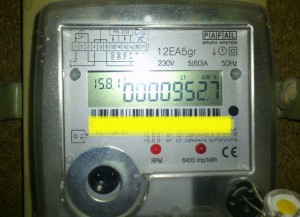
5. On the backbone power lines through which the flow of electric energy in both directions is possible, it is necessary to take into account the amount of received and transmitted electric energy.
When using metering devices of the old model, it was necessary to install separate metering devices for each component of the consumed electric energy, as well as its direction (reception or return).In this case, as in the previous one, electronic meters have a significant advantage, since one such meter can take into account both the transmitted and consumed electric energy.
6. The next advantage is the ability to measure and control the parameters of the electric network (phase-by-phase load current, voltage, power consumption). For example, if for one reason or another, one of the phases of the voltage circuits supplying one or another metering device breaks, then this device will signal violations that have occurred.
The presence of this function allows timely detection and elimination of a malfunction in the metering circuits. Also, in the electronic meter, a function for monitoring the parameters of the electric network in real time can be provided, which allows you to refuse to install measuring electrical appliances.
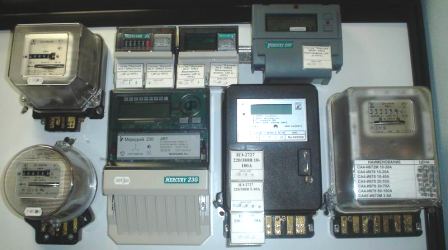
7. Along with the accuracy of measurements, the problem of theft of electricity was very urgent.
Induction meter was a godsend for theft of electricity. Some "craftsmen" carried out the theft of electricity by disrupting the normal operation of the meter. For example, the counting mechanism of induction-type counters with the help of "simple devices" easily changed the direction of its rotation, that is, the readings were rewound.
Modern electronic meters can detect attempts of unauthorized interference in the operation of the meter and, accordingly, the facts of theft of electricity.
8. The next advantage of electronic meters is the ability to build automated systems for commercial accounting of electrical energy (ASKUE).
The ASKUE system allows to automatically collect and process information about the amount of consumed electrical energy. Information is collected remotely. That is, to take readings of metering devices, it is not necessary to record readings locally.
All metering devices transmit information from all energy facilities to one computer through the ASKUE system. Due to this, there is no possibility of attracting personnel to take readings from metering devices of each of the objects (distribution substation). In addition, ASKUE allows you to automate the process of performing the necessary calculations as much as possible (the amount of consumed electric energy for a given period, the construction of electricity consumption schedules, the calculation of the balance of electricity consumption).
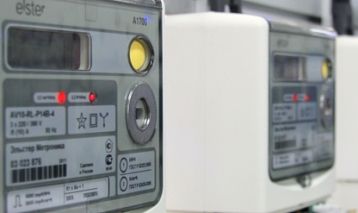
9. Electronic meters, in comparison with induction meters, have a longer calibration interval. This advantage is relevant for all categories of consumers, since the process of periodic verification of metering devices is an additional cost, and the less often they are, the better.
10. Also worth mentioning is the advantage of electronic metering devices, such as small overall dimensions.
At first glance, it seems that the electronic and induction meter are almost the same size. But if you take into account the above described functionality of the electronic counter, namely the possibility of using one electric meter keep track of the active and reactive component, and in both directions, it can be considered that the electronic meter takes up four times less space. Since if you use an induction meter, then to account for each component of the consumed electricity, you must install a separate meter.
See also at bgv.electricianexp.com
:
